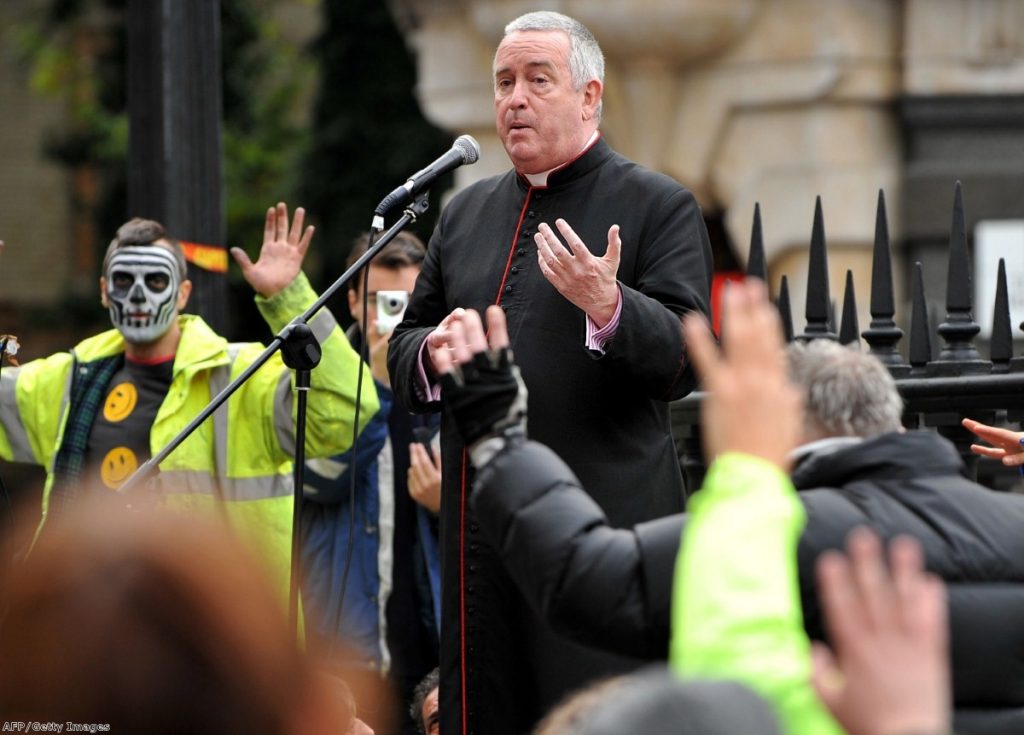The ‘Occupy’ effect: Bishops launch attack on welfare reform
By Ian Dunt Follow @IanDunt
The Church of England has gone on the attack against welfare reform, in a further sign that the Occupy movement has prompted a more radical outlook among religious leaders.
Just weeks after the Church adopted a more accommodating stance towards the protesters camped outside St Paul's, bishops across the country – backed by archbishop Rowan Williams – called for the government to rethink plans to cap household benefits.
"The Church of England has a commitment and moral obligation to speak up for those who have no voice," the bishops wrote in the letter to the Observer.


"As such, we feel compelled to speak for children who might be faced with severe poverty and potentially homelessness, as a result of the choices or circumstances of their parents. Such an impact is profoundly unjust."
In a carefully coordinated action, bishops are calling on ministers to back amendments to next week's welfare reform bill which are being tabled by the bishop of Leeds and Ripon, John Packer, in the Lords.
The bill is expected to face significant opposition in the Lords, with several Liberal Democrat and cross-bench peers expected to dig in against its proposals.
The action is further evidence of a newly invigorated radical wing in the Church of England, which has emerged from the chaotic response to the St Paul's camp with a new willingness to engage with political issues.
Three senior members of the Church resigned in the wake of the St Paul's demonstration, but the Archbishop of Canterbury tried to put the disorder behind him with a resolute defence of the demonstrators and an article arguing for a tax on financial transactions.
The decision of the Church to express the views of demonstrators has put Downing Street in a strange position. David Cameron has branded the protesters "comatose" but he praised the Archbishop's intervention as an article which "spoke for the country".
The welfare bill will limit household benefits to £500 a week, in line with average weekly wages for working households, but opponents say this move could cut support to 210,000 children and make 80,000 homeless.
The Lords amendments would remove child benefit from cap calculations, remove certain vulnerable groups from the cap, allow a grace period for families where a worker has recently been made unemployed and calculate the cap based on earnings for families with children rather than all households.
Shadow work and pensions secretary Liam Byrne said Labour supported the cap but had concerns about the way it would be implemented.
"We’ve been saying for months that the method the Tory-led government is proposing for introducing a benefits cap is so badly thought through that it risks putting up the benefits bill by putting up the costs of homelessness – with a massive impact on our country's children," he said.
A Department for Work and Pensions spokesperson said: "It simply isn't fair that households on out-of-work benefits can receive a greater income from the state than the average working household gets in wages. This is why we have proposed a benefit cap of around £500 per week."









